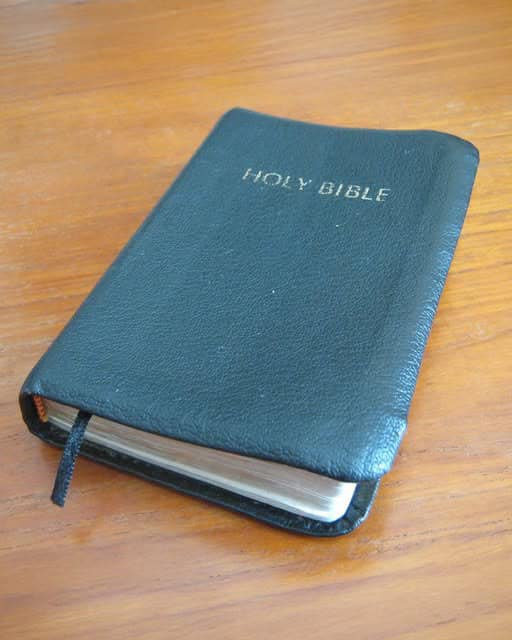When my grandmother passed away, I expected grief—but I wasn’t prepared for what came next. Instead of a traditional inheritance, I walked away from her funeral with nothing but an old Bible and a handwritten note that read, “Open it when it’s hard.”
I’m Luke, her only grandson. She raised me after my parents died, and we were close—at least, I always thought we were. So during the reading of the will, I was certain she had left something meaningful for me.
But the lawyer looked me straight in the eye and said, “Luke, your grandmother left you this Bible and a personal note.” That was it? Just a Bible? My heart sank. It felt like I’d been completely left out.
The majority of her estate had been left to a homeless shelter I had never even heard of. I felt blindsided and betrayed. That old Bible in my hands suddenly felt more like an insult than a gift.
Inside was a small note in her familiar handwriting: “Open it when it’s hard.” I didn’t want to read it. I shoved the Bible onto a shelf and tried to forget about it. For weeks, I didn’t touch it.
During that time, everything started falling apart. I lost my job. Bills piled up. The fridge was empty. I was struggling more than I ever had—and I remembered her note. Maybe this was what she meant by “when it’s hard.”
One quiet night, I finally gave in. I took the Bible down, wiped off the dust, and opened it. I didn’t know what I was looking for—comfort, maybe—but what I found was something else entirely.
As I turned the pages, something slipped out and landed on the floor. A crisp $100 bill. I froze. I flipped more pages—another bill. And another. Hidden between the verses were multiple $100 bills.
In Psalms, Proverbs, even Genesis—there was money tucked carefully throughout. Alongside them were tiny notes: “For food,” “For rent,” “For lonely nights.” My heart broke wide open. She hadn’t forgotten me.
She had known I would struggle. She had prepared for it. In her own quiet way, she was still looking after me—still loving me. And I had been too angry to see it.
That money got me through the worst days. But more than that, her words and her trust helped me feel less alone. It was like she had left her voice behind to guide me through the storm.
I found more than just cash inside that Bible. There were notes scribbled in the margins—prayers, memories, advice. Reading them felt like having a conversation with her all over again.
Eventually, I visited the shelter she’d left everything to. I learned it had helped her decades ago when she was a struggling young widow with a baby—my father. That shelter had saved her life.
Today, I volunteer there in her honor. I finally understood—her greatest legacy wasn’t the house or the jewelry. It was love, service, and quiet strength passed down through small, deliberate acts.
The Bible that once made me feel forgotten now sits beside my bed—not for the money, but for the peace it brings. Her message was clear: love doesn’t always look like what we expect. But it always shows up—right when we need it most.
